Biofuel comes out on top in another Lloyd's Register-UMAS report
Study concludes that biofuel is currently the most affordable zero-emission option for shipping.
A new report produced by Lloyd's Register and University Maritime Advisory Services (UMAS) concludes that biofuel is currently the most affordable zero-emission option for shipping, whilst also conceding that challenges remain in relation to the scale of production and sustainability of biofuel.
The 20-page document entitled 'Zero Emission Vessels, what needs to be done?' was prepared for the Sustainable Shipping Initiative (SSI) and was geared towards the needs and requirements of SSI members, who are mainly involved in deep-sea trades with container ships, bulk carriers and tankers.
It follows another study by Lloyd's Register and UMAS in December, which also ranked biofuel as the best zero-emission solution currently available.
As well as biofuel, the latest report also examines electric power and hydrogen fuel cells, and takes note of the upstream CO2 emissions that would need to be resolved as these fuels will have to be judged on an environmental performance from 'well to wake', and not just on emissions from ships.
The report argues that advanced, second-generation biofuels may represent the most economically feasible zero-emission alternative for the shipping industry.
"The fact that biofuels can be used in a way that very closely mirrors current technology, i.e. through internal combustion, means that associated additional costs are kept to a minimum of the fuel price itself," the researchers argue.
However, it is also pointed out that biofuel may not be the ideal solution for decarbonisation due to sustainability and availability. As sustainability-certified biofuel will be required to ensure that shipping's use does not clash with the world's basic food needs and other energy consumers, the document notes that finite availability or limits on production could lead to the price of biofuel rising to a point where other options - such as hydrogen - become more competitive.
On the issue of batteries, the report concludes that they remain uncompetitive and that further development is needed - in terms of performance, energy density, and cost.
In an analysis of hydrogen fuel cells, the associated costs of the technology on board (both hydrogen storage and fuel cells) are said to weigh significantly on overall profitability; however, it notes that the costs may not be prohibitive, particularly if the development of the technology and its efficiency is encouraged through other industries or through policy change.
When examining the hydrogen option, the research paper notes that there are a range of different hydrogen-derived propulsion solutions, but that the scope of the report was limited to just three potential fuel/technology combinations.
Citing an example, it observes that electrolysis with renewable electricity can be used to produce ammonia (indirectly from hydrogen or directly), which is less costly to store on board.
Voyage costs are mentioned as being the key factor that limits hydrogen's competitivenes. However, it posits that the gap in competitiveness has "great potential for reduction".
"With the ability to pass on voyage cost excess to the supply chain, effectively providing a premium on a zero[-]emission service, the magnitude of the competitiveness gap decreases hugely, and may indeed already render hydrogen fuel cells economically feasible for certain operators and routes," the report says.
As a result of the report, SSI says it will be engaged in "a deep-dive into biofuels in 2018" in order to examine their viability for the world's shipping fleet.
"Biofuels represent a stepping stone to further emissions reduction," commented Tom Holmer, General Manager of the SSI. "Alternative marine fuels provide a huge opportunity for creating value and finding sustainable solutions. The SSI will continue to look at the whole value chain and this report highlights that the next ten years will see huge changes in the way ships are fuelled."
Last year, Bunker Index covered the release of another study, in Norway, performed by the Industrial Ecology Programme and Department of Energy and Process Engineering at the Norwegian University of Science and Technology (NTNU) and SINTEF Ocean, which identified biofuel as having the highest CO2 emissions reduction potential in comparison with a list of other measures.
The document, which presents the results of a review of around 150 studies to provide an overview of CO2 emissions reduction potentials and measures, compares the CO2 emissions reduction potential of 22 measures, including biofuel, LNG, wind power, vessel size, cold ironing, speed optimization and hull coating.
The 20-page document entitled 'Zero Emission Vessels, what needs to be done?' was prepared for the Sustainable Shipping Initiative (SSI) and was geared towards the needs and requirements of SSI members, who are mainly involved in deep-sea trades with container ships, bulk carriers and tankers.
It follows another study by Lloyd's Register and UMAS in December, which also ranked biofuel as the best zero-emission solution currently available.
As well as biofuel, the latest report also examines electric power and hydrogen fuel cells, and takes note of the upstream CO2 emissions that would need to be resolved as these fuels will have to be judged on an environmental performance from 'well to wake', and not just on emissions from ships.
The report argues that advanced, second-generation biofuels may represent the most economically feasible zero-emission alternative for the shipping industry.
"The fact that biofuels can be used in a way that very closely mirrors current technology, i.e. through internal combustion, means that associated additional costs are kept to a minimum of the fuel price itself," the researchers argue.
However, it is also pointed out that biofuel may not be the ideal solution for decarbonisation due to sustainability and availability. As sustainability-certified biofuel will be required to ensure that shipping's use does not clash with the world's basic food needs and other energy consumers, the document notes that finite availability or limits on production could lead to the price of biofuel rising to a point where other options - such as hydrogen - become more competitive.
On the issue of batteries, the report concludes that they remain uncompetitive and that further development is needed - in terms of performance, energy density, and cost.
In an analysis of hydrogen fuel cells, the associated costs of the technology on board (both hydrogen storage and fuel cells) are said to weigh significantly on overall profitability; however, it notes that the costs may not be prohibitive, particularly if the development of the technology and its efficiency is encouraged through other industries or through policy change.
When examining the hydrogen option, the research paper notes that there are a range of different hydrogen-derived propulsion solutions, but that the scope of the report was limited to just three potential fuel/technology combinations.
Citing an example, it observes that electrolysis with renewable electricity can be used to produce ammonia (indirectly from hydrogen or directly), which is less costly to store on board.
Voyage costs are mentioned as being the key factor that limits hydrogen's competitivenes. However, it posits that the gap in competitiveness has "great potential for reduction".
"With the ability to pass on voyage cost excess to the supply chain, effectively providing a premium on a zero[-]emission service, the magnitude of the competitiveness gap decreases hugely, and may indeed already render hydrogen fuel cells economically feasible for certain operators and routes," the report says.
As a result of the report, SSI says it will be engaged in "a deep-dive into biofuels in 2018" in order to examine their viability for the world's shipping fleet.
"Biofuels represent a stepping stone to further emissions reduction," commented Tom Holmer, General Manager of the SSI. "Alternative marine fuels provide a huge opportunity for creating value and finding sustainable solutions. The SSI will continue to look at the whole value chain and this report highlights that the next ten years will see huge changes in the way ships are fuelled."
Last year, Bunker Index covered the release of another study, in Norway, performed by the Industrial Ecology Programme and Department of Energy and Process Engineering at the Norwegian University of Science and Technology (NTNU) and SINTEF Ocean, which identified biofuel as having the highest CO2 emissions reduction potential in comparison with a list of other measures.
The document, which presents the results of a review of around 150 studies to provide an overview of CO2 emissions reduction potentials and measures, compares the CO2 emissions reduction potential of 22 measures, including biofuel, LNG, wind power, vessel size, cold ironing, speed optimization and hull coating.
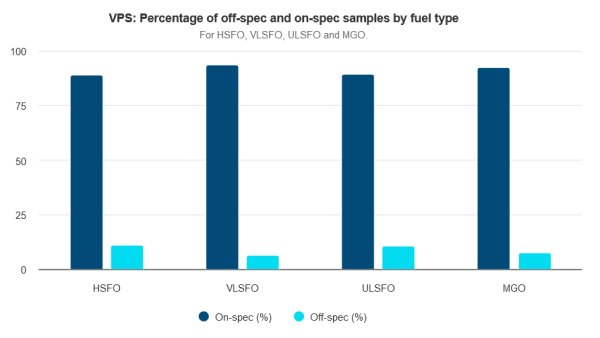
|
Is your vessel fully protected from the dangers of poor-quality fuel? | Steve Bee, VPS
Commercial Director highlights issues linked to purchasing fuel and testing quality against old marine fuel standards. |
|
|
|
||
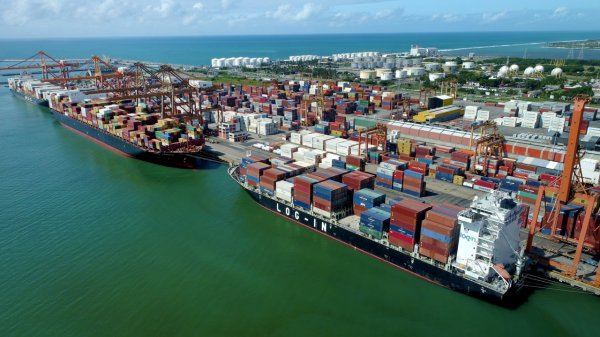
|
GDE Marine targets Suape LSMGO by year-end
Expansion plan revealed following '100% incident-free' first month of VLSFO deliveries. |
|
|
|
||
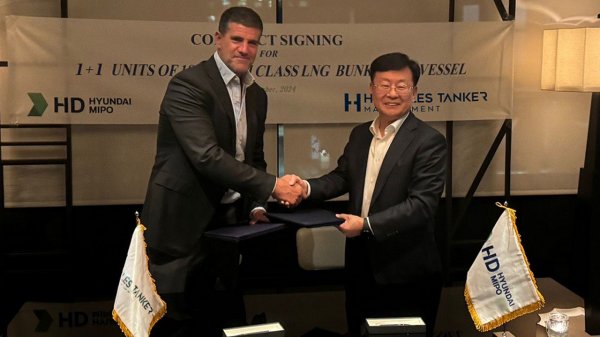
|
Peninsula CEO seals deal to build LNG bunker vessel
Agreement signed through shipping company Hercules Tanker Management. |
|
|
|
||
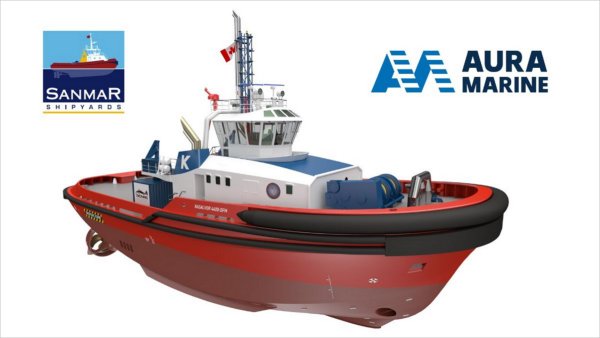
|
Auramarine supply system chosen for landmark methanol-fuelled tugs
Vessels to enter into service in mid-2025. |
|
|
|
||

|
Rise in bunker costs hurts Maersk profit
Shipper blames reroutings via Cape of Good Hope and fuel price increase. |
|
|
|
||

|
Dan-Bunkering posts profit rise in 2023-24
EBT climbs to $46.8m, whilst revenue dips from previous year's all-time high. |
|
|
|
||
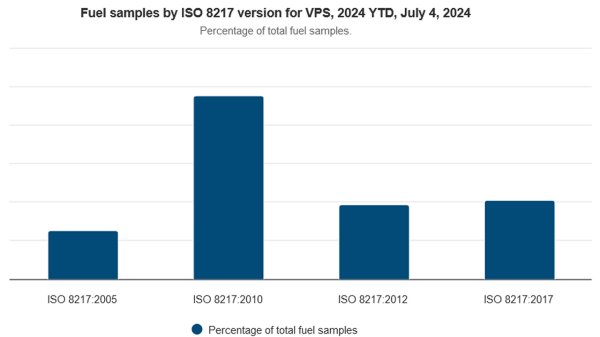
|
ISO 8217:2024 'a major step forward' | Steve Bee, VPS
Revision of international marine fuel standard has addressed a number of the requirements associated with newer fuels, says Group Commercial Director. |
|
|
|
||

|
EBT down 45.8% for Glander International Bunkering
CFO lauds 'resilience' as firm highlights decarbonization achievements over past year. |
|
|
|
||

|
KPI OceanConnect posts 59% drop in pre-tax profit
Diminished earnings and revenue as sales volume rises by 1m tonnes. |
|
|
|
||
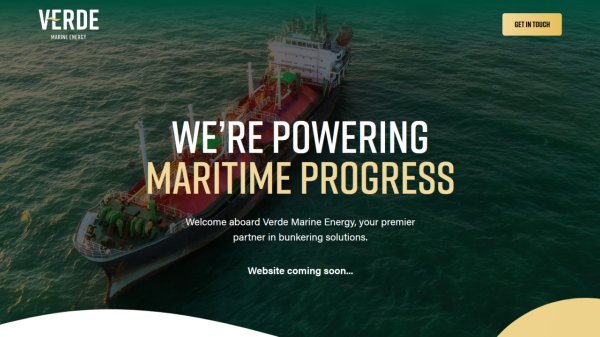
|
Delta Energy's ARA team shifts to newly launched Verde Marine
Physical supplier offering delivery of marine gasoil in the ARA region. |
|
|
|
||

